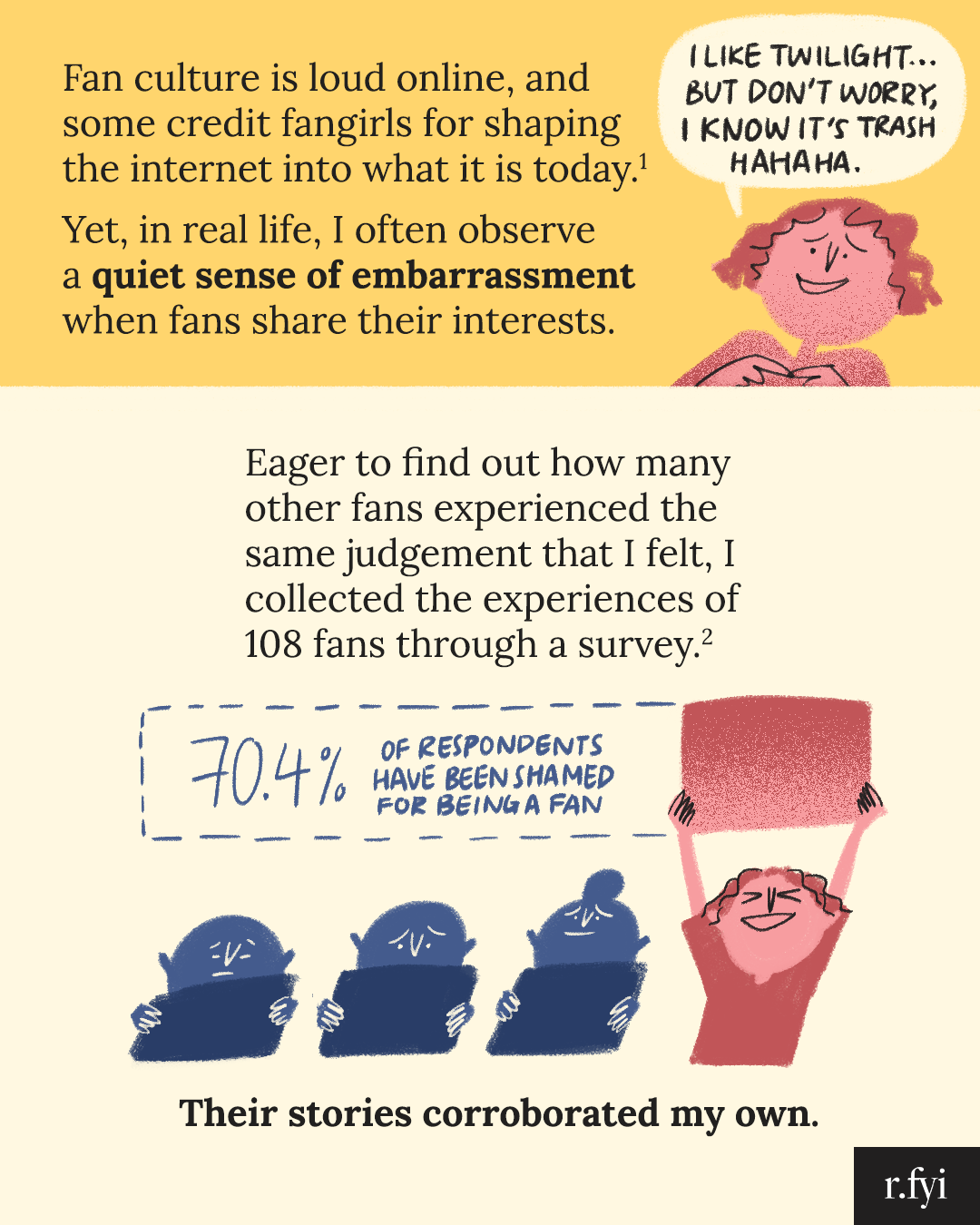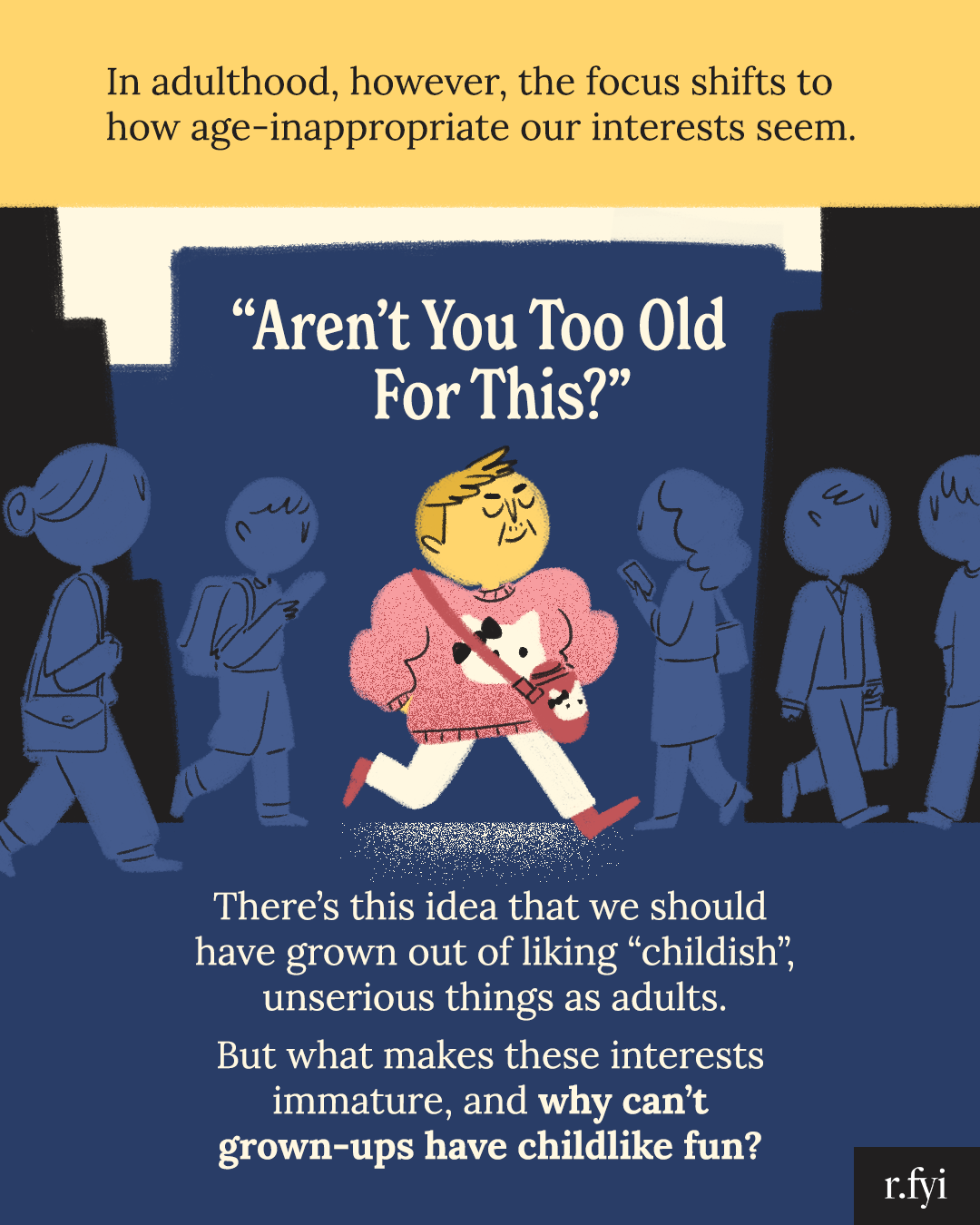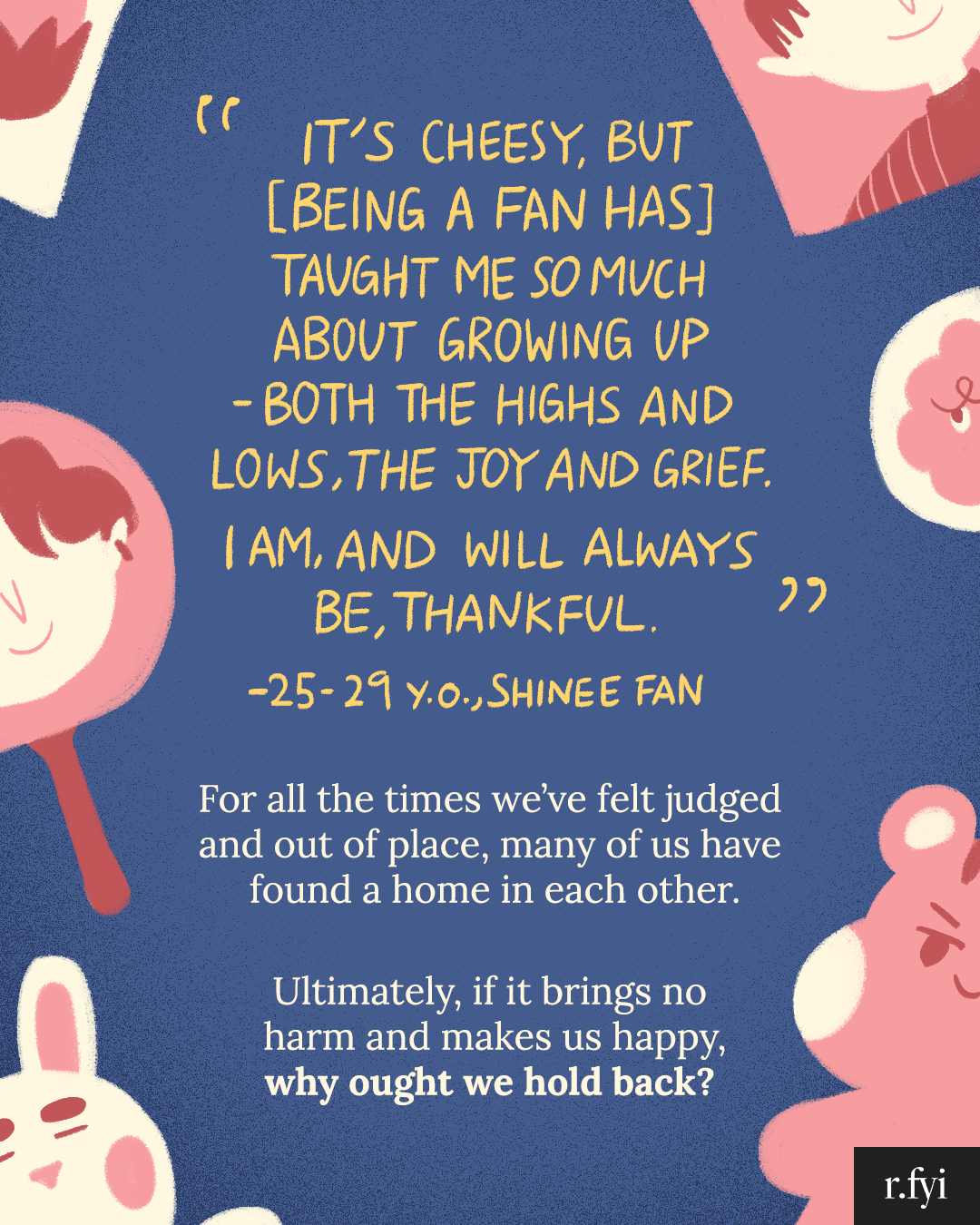#13 Fangirling is not a waste of time if it makes me happy
Wrote this for my 13-year-old self 💖
Sources
1. Patel, Nilay. “How Fandom Built the Internet as We Know It, With Kaitlyn Tiffany.” The Verge, 14 June 2022, www.theverge.com/23166273/fandom-music-kaitlyn-tiffany-one-direction-harry-styles-k-pop-decoder-podcast-interview.
2. Spreadsheet of survey results: https://docs.google.com/spreadsheets/d/1crJY-DKMiVsKOrqfpNIzuvwMhR_rgF-c/edit?usp=sharing&ouid=100235591119694501091&rtpof=true&sd=true
3. Gommans, Rob, et al. “Popularity, Likeability, and Peer Conformity: Four Field Experiments.” Journal of Experimental Social Psychology, vol. 279–289, 1 Nov. 2017, https://doi.org/10.1016/j.jesp.2017.10.001.
4. Halasz, Judith. “The Ethics of Work: Productivity, the Work Ethic, and Bohemian Self-Determination.” International Journal of Humanities and Social Science, vol. 2, no. 4, Feb. 2012, pp. 209–22. www.researchgate.net/publication/234676605_The_Ethics_of_Work_Productivity_the_Work_Ethic_and_Bohemian_Self-Determination.
5. Busse, Kristina. “Geek Hierarchies, Boundary Policing, and the Gendering of the Good Fan.” Participations - Journal of Audience and Reception Studies, vol. 10, no. 1, May 2013, pp. 73–91. www.participations.org/10-01-06-busse.pdf.
6. Railton, Diane. “The Gendered Carnival of Pop.” Popular Music, vol. 20, no. 3, Cambridge UP (CUP), Oct. 2001, pp. 321–31. Crossref, https://doi.org/10.1017/s0261143001001520.
7. Zubernis, Lynn, and Katherine Larsen. Fandom at the Crossroads: Celebration, Shame and Fan/Producer Relationships. England, Cambridge Scholars Publishing, 2012.











